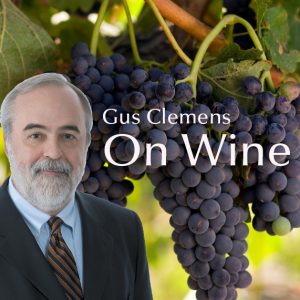Wine has so intimately intertwined with humans for more than 8,000 years we tend to think what we sip today is similar, maybe the same, as ancient Greeks and Romans and Christians tasted.

Nothing could be further from the truth.
Wine today is product of radical changes in human understanding of wine and winemaking in the last 200 years, and especially the last 100 years.
Louis Pasteur (1822-1895) was a vital player. He figured out yeast turns fruit sugars into alcohol and carbon dioxide, thus revealing the method behind God’s magic. He also figured out bacteria turns wine into vinegar, thus revealing why wine spoiled.
Armed with knowledge and abetted by breakthroughs of the industrial revolution, winemakers went from dumping juice in a vat and praying to understanding fermentation and then, critically, putting the product into mass-produced, uniform bottles sealed with a cork so bacteria could not do their vinegar-making thing.
Production of quality wine that could last, even improve, with aging was born in the mid-19th century but lasted for only a couple of decades. Then came vineyard devastation by phylloxera insects in the 1880s, followed by the ravages of two world wars.
The golden age of wine we enjoy today is a product of the second half of the 20th century. France, then Germany, Italy, Spain, Portugal, the U.S. and other countries introduced regulations—those DOCG, AOC, AVA abbreviations you see on bottles—to specify place and, to some extent, quality and composition of wine.
Given opportunity to enjoy quality, the attitudes of wine drinkers changed. In the past, much wine drinking was a method to get drunk or elevate mood even if the wine did not taste that good. Now, with quality and nuance and widespread availability, wine became a complement to food and a mark of sophistication and gentility for the masses, not just privileged elites. Critics such as Robert Parker Jr. helped you to find what you wanted.
Next time you pour a $25 cab that tastes better than the best Bordeaux of 200 years ago, say thank you to Louis Pasteur, inventors of bottle-making machines, and wine makers who, after 8,000 years, finally put it all together.
Last round: A meal without wine is called breakfast. Wait, scratch that. There is mimosa.
Email Gus at wine@cwadv.com. Facebook: Gus Clemens on Wine. Twitter: @gusclemens. Website: gusclemens.com.
